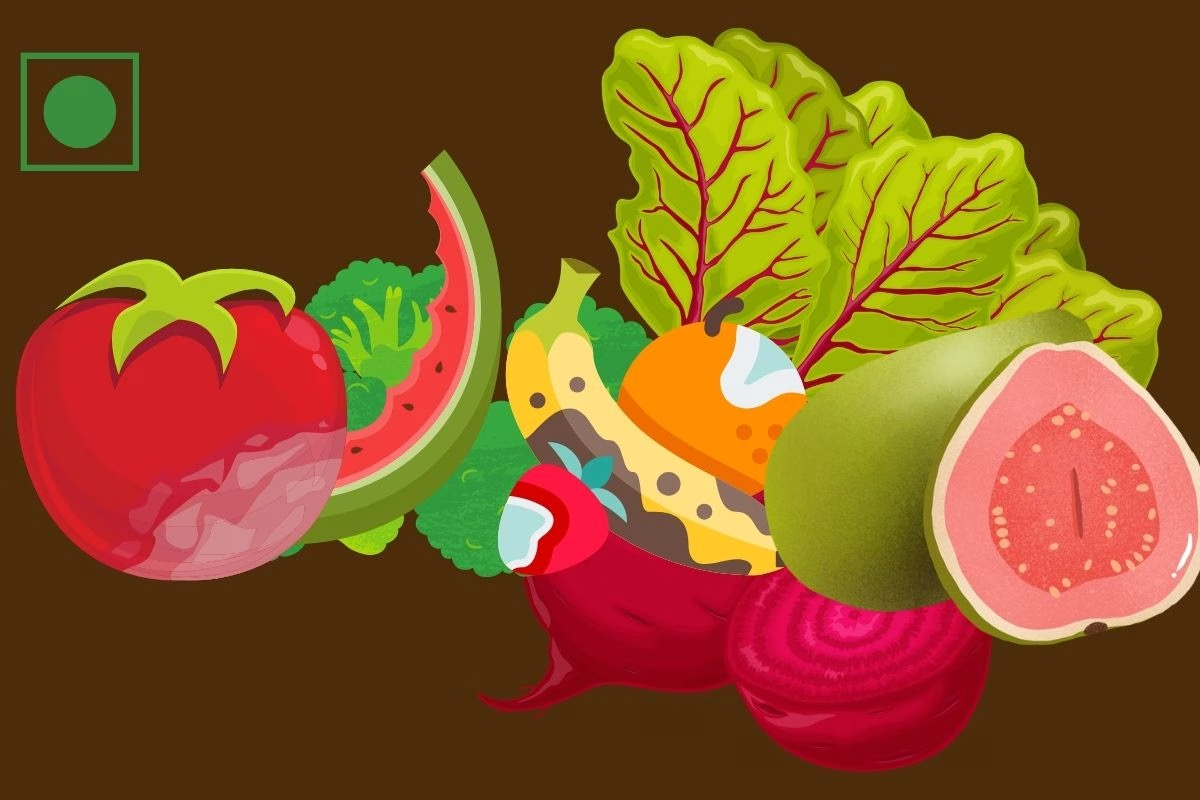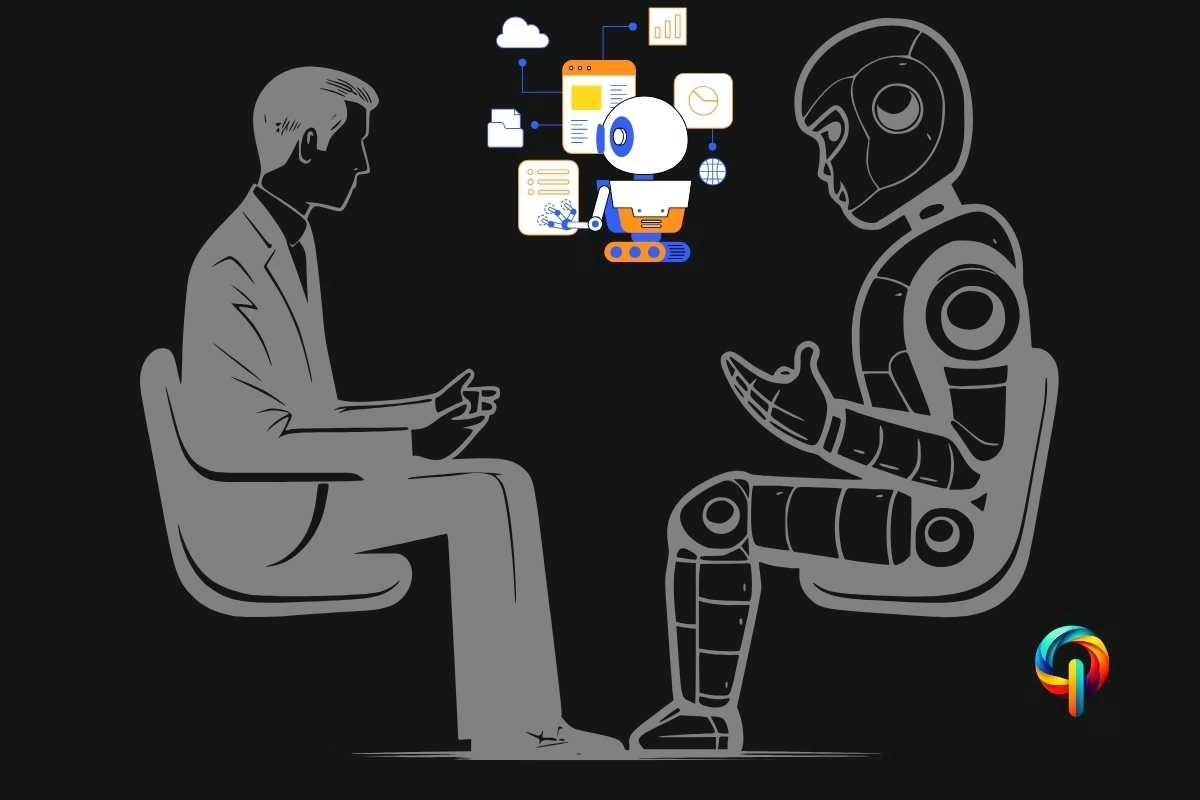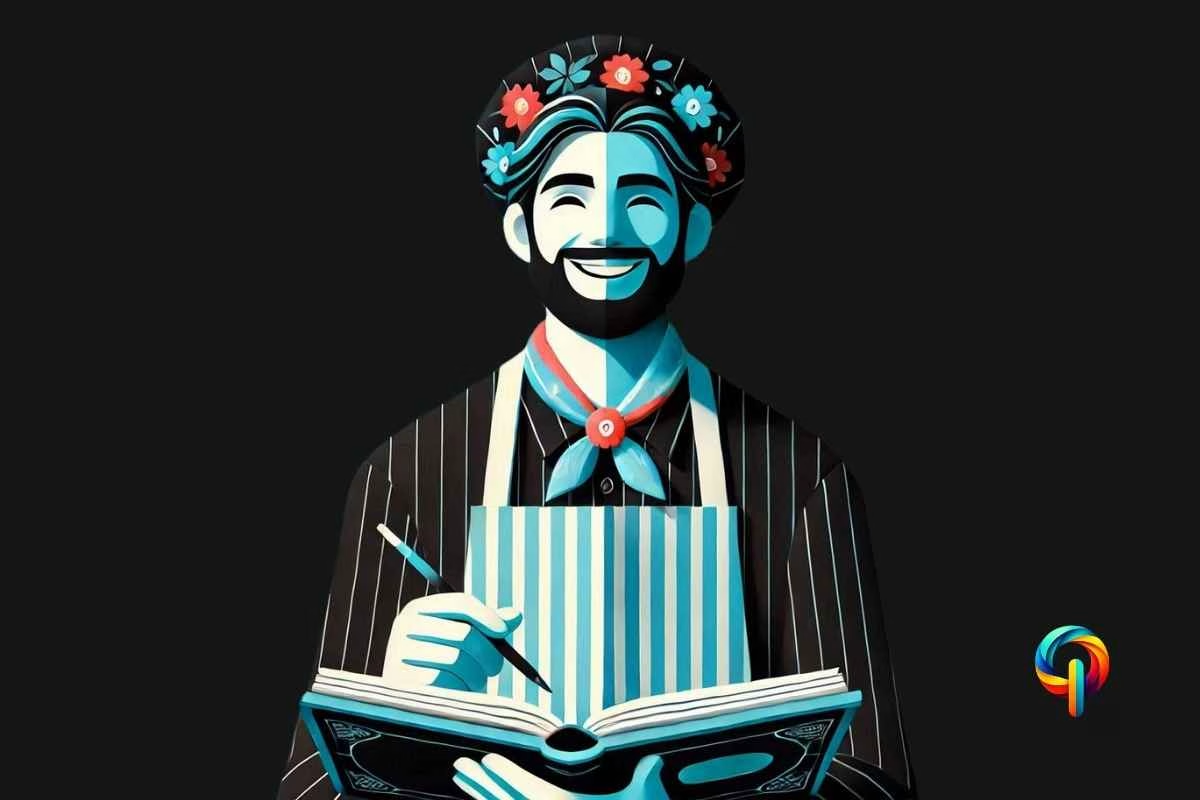
This article champions the organic food movement, arguing that it’s not a fleeting trend but a crucial shift toward a healthier and more sustainable future. The text systematically explores what constitutes organic food, emphasizing its production methods that prioritize soil health, biodiversity, and natural processes over synthetic inputs. It highlights the health and environmental benefits of organic food, while acknowledging the challenges, including cost, accessibility, and certification complexities. Finally, the piece looks to the future, discussing innovative farming techniques like vertical farming and precision agriculture as solutions to these challenges and promoting organic food’s role in building climate resilience. The overarching purpose is to educate readers about the significance of organic food and encourage conscious consumption choices.
Document Tabs Of Organic Food Revolution
Why Is Organic Food More Than Just a Passing Trend?
Let me tell you something about organic food—it’s not just kale-loving hipsters or Instagram-worthy farmers’ markets anymore. What started as a quiet movement has exploded into a full-blown revolution. And trust me, this isn’t just another trend that’ll fade away like avocado toast jokes. Organic food is here to stay, and it’s changing the way we grow, eat, and think about what’s on our plates.
I remember the first time I walked into a grocery store and saw the “Organic” section. It was tiny, tucked away in a corner, and honestly, it felt a little intimidating. The prices were higher, the packaging was fancier, and I couldn’t help but wonder, “Is this really worth it?” Fast forward to today, and organic food is everywhere—from big-box retailers to local co-ops. It’s not just a section anymore; it’s a movement.
But here’s the thing: organic food isn’t just about what’s not in it (like pesticides or synthetic fertilizers). It’s about what it represents—a shift toward healthier living, a cleaner environment, and a more sustainable future. It’s about reconnecting with where our food comes from and understanding the impact of our choices.
In this article, we’ll dive into the organic food revolution—why it’s more than just a trend, the benefits it brings to our health and the planet, and the challenges it still faces. Whether you’re a seasoned organic shopper or someone who’s still on the fence, this is your guide to understanding why organic food isn’t just a fad—it’s the future.
So, let’s get into it. Because when it comes to food, the choices we make today will shape the world we live in tomorrow. And honestly, that’s something worth talking about.
Let’s dive in: Evolution Of Human Food: Prehistoric To Age Of Globalization.
What is Organic Food?
Start with the basics: what is organic food, really? I used to think it was just a fancy label slapped on overpriced produce to make me feel guilty about my regular apples. But the more I dug into it, the more I realized it’s so much more than that.
Organic food is all about going back to the roots—literally. It’s food grown and processed without synthetic pesticides, chemical fertilizers, genetically modified organisms (GMOs), or artificial additives. Think of it as nature’s way of saying, “Let’s keep it simple.” Instead of relying on chemicals to boost growth or kill pests, organic farming works with nature. It’s about nurturing the soil, encouraging biodiversity, and creating a system that’s sustainable for the long haul.
But here’s the kicker: organic farming isn’t just about what’s not in your food. It’s about what’s in it—more nutrients, better flavor, and a whole lot of care. It’s farming that respects the land, the farmers, and the people who eat the food.
Definition and Importance of Organic Food
Okay, let’s get real for a second. Why does organic food even matter? I mean, isn’t all food basically the same once it hits your plate?
Not quite.
Organic food is a game-changer because it’s about more than just what you eat—it’s about how that food is grown and what it does for your body and the planet. When you choose organic, you’re saying no to synthetic pesticides that can harm your health and yes to nutrient-dense crops grown in healthy, thriving soil.
I’ll never forget the first time I bit into an organic strawberry. It was like a flavor explosion—sweet, juicy, and nothing like the bland, watery ones I was used to. That’s when it hit me: organic food isn’t just better for you; it’s better, period.
But it’s not just about taste. Organic farming reduces pollution, conserves water, and supports biodiversity. It’s a win-win for your health and the environment. And in a world where climate change and food security are becoming bigger concerns, that’s a big deal.
Key Principles of Organic Farming
Now, let’s talk about how organic farming actually works. Spoiler alert: it’s not just throwing seeds in the ground and hoping for the best.
Organic farming is built on a set of principles that prioritize sustainability and respect for nature. One of the biggest ones? Crop rotation. Instead of planting the same crop year after year (which depletes the soil), organic farmers rotate crops to keep the soil healthy and fertile. It’s like giving the land a chance to recharge.
Then there’s natural pest control. Instead of dousing crops in chemicals, organic farmers use methods like introducing beneficial insects (yes, ladybugs are heroes) or planting companion crops that naturally repel pests. It’s farming smarter, not harder.
And let’s not forget composting. Organic farmers turn food scraps, manure, and plant waste into nutrient-rich compost that feeds the soil. It’s like recycling, but for the earth.
These practices aren’t just good for the environment—they’re essential for producing food that’s truly healthy. When the soil is rich and thriving, the food that grows in it is too.
Why This Matters
Here’s the thing: organic farming isn’t just a feel-good trend. It’s a necessity. With climate change, soil degradation, and water scarcity becoming bigger threats every day, we need farming practices that work with the planet, not against it.
I’m not saying everyone needs to go 100% organic overnight (trust me, I still have my non-organic guilty pleasures). But understanding what organic food is and why it matters is the first step toward making better choices—for ourselves and for the planet.
So, the next time you see that organic label, don’t just think of it as a price hike. Think of it as a small but powerful way to support a healthier, more sustainable future. And honestly, that’s something worth investing in.
The Role of Organic Food in Modern Diets
Be honest—modern diets are a mess. Between fast food, processed snacks, and sugar-laden everything, it’s easy to feel like we’re losing control of what we eat. But here’s where organic food comes in. It’s not just a trend for health nuts or eco-warriors; it’s a way to take back control of our diets and make choices that actually matter.
I’ll admit, I used to roll my eyes at the idea of organic food. “It’s just a marketing gimmick,” I’d say, while tossing a bag of conventionally grown apples into my cart. But then I started paying attention—to the way my body felt after eating organic versus non-organic, to the stories of farmers who’ve switched to organic practices, and to the growing evidence that what we eat affects not just our health, but the planet’s too.
Organic food has become a cornerstone of modern diets because it’s about more than just food—it’s about a mindset. It’s about choosing quality over convenience, transparency over mystery, and sustainability over shortcuts. Whether it’s a crisp organic apple or a loaf of organic whole-grain bread, every bite feels like a small but meaningful step toward a healthier, more ethical way of living.
Health Benefits of Organic Food
Okay, let’s talk about the elephant in the room: is organic food actually healthier? I mean, it’s more expensive, so it should be, right?
Turns out, the answer is a resounding yes—but not in the way you might think. Organic food isn’t just about avoiding pesticides (though that’s a huge plus). It’s about what’s in the food. Studies have shown that organic produce often contains higher levels of antioxidants, those magical compounds that help fight inflammation and protect your cells from damage.
I remember reading a study that compared organic and conventional strawberries. The organic ones had significantly more antioxidants and vitamin C. That was my “aha” moment. It’s not just about what’s not in your food—it’s about what’s in it.
And let’s not forget about pesticide residue. Conventional farming relies heavily on synthetic pesticides, which can linger on your food and, over time, accumulate in your body. Organic food, on the other hand, is grown without these chemicals, reducing your exposure and lowering the risk of health issues linked to pesticide exposure.
For me, choosing organic is like giving my body a little extra love. It’s not just about eating—it’s about nourishing myself in a way that feels good, inside and out.
Environmental Benefits of Organic Farming
Now, let’s talk about the planet. Because let’s face it: what’s good for us should also be good for the Earth, right?
Organic farming is like a love letter to the environment. It’s all about working with nature, not against it. Instead of dousing fields with synthetic fertilizers that can pollute waterways, organic farmers use natural compost and crop rotation to keep the soil healthy. Healthy soil means healthier plants, which means healthier food for us.
But it doesn’t stop there. Organic farming also supports biodiversity. Conventional farming often relies on monoculture—growing the same crop year after year—which depletes the soil and makes crops more vulnerable to pests. Organic farms, on the other hand, are like ecosystems. They’re teeming with life, from beneficial insects to diverse crops that work together to create a balanced, sustainable system.
And then there’s the carbon footprint. Organic farming uses fewer synthetic inputs, which means fewer greenhouse gas emissions. It’s a small but powerful way to fight climate change, one farm at a time.
I’ll never forget visiting an organic farm for the first time. The air smelled different—cleaner, fresher. The soil was dark and rich, and the fields were alive with bees, butterflies, and birds. It was a reminder that food isn’t just something we eat; it’s something we’re a part of.
Why This Matters
Here’s the bottom line: organic food isn’t just a personal choice; it’s a collective one. Every time we choose organic, we’re voting for a healthier planet, a fairer food system, and a better future.
I’m not saying it’s easy. Organic food can be more expensive, and it’s not always accessible to everyone. But even small changes—like choosing organic for the “Dirty Dozen” (the fruits and veggies with the most pesticide residue)—can make a difference.
At the end of the day, organic food is about more than just what’s on your plate. It’s about what kind of world you want to live in. And for me, that’s a world where food is grown with care, eaten with gratitude, and shared with love.
So, the next time you’re at the grocery store, take a moment to think about where your food comes from. Because every bite is a chance to make a choice—for your health, for the planet, and for the future. And honestly, that’s a pretty powerful thing.
Challenges of the Organic Food Movement
As much as I love organic food and everything it stands for, it’s not all sunshine and rainbows. The organic food movement has its fair share of challenges—big ones. And if we’re going to talk about why organic food matters, we also need to talk about what’s holding it back.
I remember the first time I tried to go “full organic.” I walked into the grocery store, filled my cart with organic produce, and then nearly had a heart attack at the checkout. The price difference was staggering. I left wondering, “How is anyone supposed to afford this?”
And that’s just the tip of the iceberg. From accessibility issues to the complexities of organic certification, the road to a truly organic food system is paved with obstacles. But here’s the thing: understanding these challenges is the first step toward overcoming them.
Cost and Accessibility Issues
Why is organic food so much more expensive?
I used to think it was just a markup for the fancy label, but the truth is a lot more complicated.
Organic farming is labor-intensive. Without synthetic pesticides or fertilizers, farmers rely on manual weeding, crop rotation, and natural pest control methods—all of which take more time and effort. Then there’s the certification process, which isn’t cheap. Farmers have to pay for inspections, paperwork, and compliance with strict standards. All of that adds up, and unfortunately, those costs get passed on to us, the consumers.
But it’s not just about money. Accessibility is another huge issue. If you live in a big city, you might have no problem finding organic food. But in rural areas or low-income neighborhoods, it’s a different story. Organic options are often limited, and when they are available, they’re priced out of reach for many families.
I’ll never forget talking to a single mom at a farmers’ market who told me she wanted to buy organic for her kids but couldn’t afford it. “It’s frustrating,” she said. “I know it’s better for them, but I have to stretch every dollar.”
So, how do we fix this? It’s not easy, but there are solutions. Government subsidies for organic farmers, community-supported agriculture (CSA) programs, and initiatives to bring organic food into underserved areas are all steps in the right direction. But it’s going to take time, effort, and a whole lot of advocacy.
Certification and Regulation Challenges
Now, let’s talk about organic certification. It’s the gold standard for organic food, but it’s also one of the biggest hurdles for farmers.
Getting certified organic isn’t just a matter of filling out a form. It’s a rigorous process that involves detailed record-keeping, on-site inspections, and strict compliance with standards. For small farmers, the cost and complexity can be overwhelming. I’ve heard stories of farmers who want to go organic but can’t afford the certification fees or don’t have the resources to navigate the process.
And then there’s the issue of fraud. Unfortunately, not everyone plays by the rules. There have been cases of companies labeling products as organic when they’re not, which undermines trust in the entire system.
I remember reading about a scandal where a large supplier was caught selling non-organic grains as organic. It made me wonder, “How can I be sure what I’m buying is really organic?”
The answer lies in stronger regulations and better enforcement. We need clearer labeling, more transparency, and harsher penalties for fraud. But we also need consumers to be informed and vigilant. The more we demand accountability, the harder it will be for bad actors to get away with cutting corners.
Why This Matters
Here’s the thing: the challenges facing the organic food movement aren’t just problems for farmers or policymakers—they’re problems for all of us. Because if we want a food system that’s healthier, more sustainable, and more equitable, we have to address these issues head-on.
I’m not saying it’s going to be easy. Change never is. But every time we choose organic, every time we support a local farmer, and every time we advocate for better policies, we’re pushing the movement forward.
So, the next time you see that organic label, remember: it’s not just a sticker. It’s a symbol of a bigger vision—one that’s worth fighting for, even when the road gets tough. Because at the end of the day, the future of our food is too important to leave to chance.
Innovations in Organic Food Production
Because organic food isn’t just about going back to traditional farming methods. It’s also about embracing the future with open arms. And let me tell you, the innovations happening in organic food production are nothing short of revolutionary.
I remember the first time I heard about vertical farming. I was skeptical. “Growing food indoors? In stacked layers? That sounds like something out of a sci-fi movie.” But the more I learned, the more I realized: this isn’t just a cool idea—it’s a game-changer for organic food.
From vertical farming to precision agriculture, technology is transforming how we grow, distribute, and think about organic food. And the best part? These innovations aren’t just making organic farming more efficient—they’re making it more accessible, sustainable, and scalable.
Vertical Farming and Urban Agriculture
Picture this: a skyscraper in the middle of a bustling city, but instead of offices, it’s filled with rows of lush, green crops. That’s vertical farming, and it’s one of the most exciting developments in organic food production.
I visited a vertical farm last year, and it blew my mind. The crops were grown in stacked trays under LED lights, with water and nutrients delivered through hydroponic systems. There were no pesticides, no synthetic fertilizers—just clean, organic food growing in the heart of the city.
The benefits are incredible. Vertical farming uses up to 95% less water than traditional farming, and because it’s indoors, there’s no need for pesticides. Plus, it brings food production closer to urban consumers, reducing the carbon footprint of transportation.
But it’s not just about efficiency. Vertical farming is also about reimagining our cities. Imagine walking into a grocery store and buying lettuce that was grown just a few blocks away. That’s the power of urban agriculture—it’s local, it’s fresh, and it’s organic.
Precision Agriculture and Data-Driven Farming
If you’re imagining farmers with clipboards and calculators, think again. Precision agriculture is all about using data and technology to farm smarter, not harder.
I’ll never forget the first time I saw a drone flying over a field. At first, I thought it was just for show. But then the farmer explained: that drone was collecting data on crop health, soil moisture, and pest activity. That data was then analyzed to make real-time decisions about irrigation, fertilization, and pest control.
For organic farmers, this is a game-changer. Precision agriculture allows them to monitor soil health, optimize resource use, and reduce waste—all while maintaining the strict standards required for organic certification.
One farmer I spoke to told me how soil sensors had transformed his farm. “Before, I was guessing how much water my crops needed,” he said. “Now, I know exactly when and where to irrigate. It’s made my farm more efficient and more sustainable.”
Why This Matters
Here’s the thing: organic food isn’t just about avoiding chemicals or following rules. It’s about creating a food system that works for everyone—farmers, consumers, and the planet. And innovations like vertical farming and precision agriculture are helping to make that vision a reality.
I’m not saying these technologies are perfect. Vertical farming can be energy-intensive, and precision agriculture requires significant upfront investment. But they’re steps in the right direction—steps that are helping to overcome the challenges of cost, accessibility, and scalability.
So, the next time you bite into an organic apple or toss a handful of organic spinach into your salad, take a moment to think about how it got to your plate. Because behind every piece of organic food is a story—a story of innovation, sustainability, and hope for a better future.
The Future of Organic Food
With climate change, food insecurity, and environmental degradation looming large, organic food isn’t just a choice—it’s a necessity.
I remember when organic food was seen as a niche market, something only for health fanatics or eco-conscious elites. But today, it’s becoming mainstream. People are waking up to the fact that what we eat doesn’t just affect our bodies—it affects the planet. And organic food is at the heart of that realization.
The future of organic food is bright, but it’s not without its challenges. It’s about more than just growing food without chemicals. It’s about creating a food system that’s healthier, more equitable, and more sustainable. And the best part? We’re already seeing glimpses of what that future could look like.
Global Trends in Organic Food Adoption
Organic food is going global. It’s not just a Western trend anymore. From Europe to Asia to Africa, more and more people are choosing organic.
I was recently reading a report that said the global organic food market is expected to grow by over 14% in the next five years. That’s huge. And it’s not just because people want to eat healthier—it’s because they care about where their food comes from and how it’s grown.
Take India, for example. I spoke to a farmer there who switched to organic farming a few years ago. At first, he was skeptical. “I didn’t think it would work,” he told me. “But now, my soil is healthier, my crops are better, and I’m making more money because people are willing to pay a premium for organic.”
It’s stories like these that give me hope. Organic food isn’t just a luxury—it’s a lifeline for farmers, consumers, and the planet.
Organic Food and Climate Resilience
Climate change! It’s the biggest challenge we face, and organic food is one of the best tools we have to fight it.
I’ll never forget visiting an organic farm in California during a drought. While neighboring farms were struggling, this one was thriving. The secret? Healthy soil. Organic farming practices like crop rotation, composting, and cover cropping had built up the soil’s ability to retain water, making the farm more resilient to drought.
But it’s not just about water. Organic farming also helps combat climate change by capturing carbon in the soil. This process, known as carbon sequestration, reduces greenhouse gas emissions and helps reverse the effects of climate change.
And then there’s regenerative agriculture—a buzzword you’ve probably heard. It’s all about farming in a way that restores the land rather than depleting it. Think of it as organic farming on steroids. By focusing on soil health, biodiversity, and ecosystem balance, regenerative agriculture is helping to build climate-resilient food systems that can adapt to whatever the future throws at us.
“More FAQs on The Organic Food”
1. What is organic food?
Organic food is grown and processed following strict guidelines that prioritize natural methods over synthetic inputs. This means no synthetic pesticides, chemical fertilizers, or genetically modified organisms (GMOs). Organic farmers rely on practices like crop rotation, composting, and natural pest control to maintain soil health and produce nutritious food. But it’s not just about what’s not used—it’s about what is done. Organic farming focuses on sustainability, biodiversity, and ethical treatment of animals. It’s a holistic approach that considers the long-term health of the land, the people who work it, and the consumers who eat the food.
2. Why is organic food more expensive?
The higher cost of organic food comes down to a few key factors: labor-intensive practices, certification costs, lower yields, and supply and demand. Without synthetic pesticides or fertilizers, organic farmers often rely on manual labor for tasks like weeding and pest control. Getting certified organic isn’t cheap—farmers must pay for inspections, paperwork, and compliance with strict standards. Organic farming typically produces lower yields compared to conventional methods, at least in the short term, and organic food is still a smaller segment of the market, which can drive up prices due to limited supply. While the price tag might be higher, many people see it as an investment in their health, the environment, and the future of sustainable farming.
3. Is organic food healthier?
The health benefits of organic food are backed by a growing body of research. Studies have found that organic produce often contains higher levels of certain nutrients, such as antioxidants, which help combat oxidative stress and inflammation. Organic meat and dairy products also tend to have higher levels of omega-3 fatty acids, which are beneficial for heart health. Additionally, organic food reduces exposure to synthetic pesticides and chemical residues, which have been linked to various health issues, including hormone disruption and neurological problems. While the differences may seem small, they can add up over time, especially for vulnerable populations like children and pregnant women
4. How does organic farming help the environment?
Organic farming is a win for the planet in several ways. It improves soil health through practices like composting and crop rotation, making the soil more resilient to erosion and drought. By avoiding monoculture and synthetic chemicals, organic farms support a wider variety of plants, insects, and wildlife, promoting biodiversity. Organic farming also reduces water pollution by avoiding synthetic fertilizers and pesticides that can leach into waterways. Healthy organic soils capture and store carbon, helping to mitigate climate change. In short, organic farming isn’t just about growing food—it’s about protecting the ecosystems that make life possible.
5. What are the challenges of organic farming?
Organic farming faces several hurdles, including higher costs, accessibility issues, a lengthy transition period, and challenges with fraud and mislabeling. The labor-intensive nature of organic farming and the cost of certification can be prohibitive for some farmers. Organic food is often less available in rural or low-income areas, making it harder for everyone to access. Switching from conventional to organic farming can take years, during which farmers may face lower yields and financial uncertainty. Ensuring the integrity of organic labels is an ongoing challenge, with some companies falsely claiming their products are organic. Despite these challenges, the organic movement is growing, driven by consumer demand and innovative solutions.
6. How can I support the organic food movement?
Supporting organic food doesn’t have to be complicated. Start by choosing organic when you can, especially for the “Dirty Dozen” (the fruits and veggies with the most pesticide residue). Visit farmers’ markets or join a CSA (Community-Supported Agriculture) to support local organic farmers. Even a small garden can help you connect with the principles of organic farming. Advocate for policies that promote sustainable agriculture and make organic food more accessible. Every small action adds up, and together, we can create a more sustainable food system
7. What is the future of organic food?
The future of organic food is bright, but it’s not without challenges. As consumer demand grows, so does innovation. Technologies like vertical farming, precision agriculture, and regenerative practices are making organic farming more efficient and scalable. At the same time, the organic movement is expanding beyond food to include textiles, cosmetics, and other products. It’s becoming a global movement that prioritizes health, sustainability, and ethical practices. The future of organic food isn’t just about what’s on our plates—it’s about the kind of world we want to live in. And that’s a future worth fighting for.
8. Can organic farming feed the world?
This is a hotly debated question. Critics argue that organic farming produces lower yields and can’t meet the demands of a growing global population. But supporters point out that organic farming is about more than just yield—it’s about sustainability. By improving soil health, conserving water, and reducing pollution, organic farming can create a more resilient food system that’s better equipped to handle the challenges of climate change and population growth. It’s not a quick fix, but it’s a long-term solution that benefits both people and the planet.
9. What’s the deal with organic certification?
Organic certification is a rigorous process that ensures food meets strict standards. In the U.S., for example, the USDA Organic label means the product is at least 95% organic, with no synthetic pesticides, GMOs, or artificial additives. But certification isn’t easy. Farmers must keep detailed records, undergo regular inspections, and pay fees. For small farmers, these requirements can be a barrier, which is why some choose to farm organically without certification. Supporting these farmers can be just as impactful as buying certified organic products.
10. Is organic food worth the hype?
Absolutely. Organic food isn’t just a trend—it’s a movement toward a healthier, more sustainable future. It’s about making choices that align with your values, whether that’s your health, the environment, or the well-being of farmers. Is it perfect? No. But it’s a step in the right direction. And in a world that often feels overwhelming, that’s something worth celebrating.
Conclusion: The Organic Food Revolution—A Movement Worth Embracing
As I reflect on everything we’ve explored—from the rise of organic food to its challenges, innovations, and future potential—one thing is clear: the organic food movement is more than just a trend. It’s a revolution. A revolution that’s reshaping how we grow, buy, and think about food.
Organic food isn’t just about avoiding pesticides or eating healthier. It’s about reconnecting with the earth, supporting farmers who care about the land, and making choices that align with our values. It’s about recognizing that every bite we take has an impact—on our health, on the environment, and on the future of our planet.
Yes, there are challenges. Organic food can be expensive, inaccessible, and sometimes confusing. The certification process is rigorous, and transitioning to organic farming isn’t easy. But these challenges aren’t roadblocks—they’re opportunities. Opportunities to innovate, to advocate, and to create a food system that works for everyone.
The innovations in organic farming—vertical farming, precision agriculture, regenerative practices—are proof that we’re moving in the right direction. These advancements are making organic food more sustainable, scalable, and accessible. They’re helping us overcome the hurdles and build a future where organic food isn’t a luxury—it’s the norm.
And let’s not forget the bigger picture. Organic farming isn’t just about food—it’s about addressing global challenges like climate change, food insecurity, and environmental degradation. It’s about creating a world where the food we eat nourishes not just our bodies, but the planet too.
So, where do we go from here? It starts with small steps. Choose organic when you can. Support local farmers. Grow your own food. Advocate for policies that promote sustainability. Every action, no matter how small, is a step toward a healthier, more equitable, and more sustainable future.
The organic food revolution isn’t just about what’s on our plates—it’s about the kind of world we want to live in. And that’s a world worth fighting for.
So, the next time you see that organic label, remember: it’s not just a sticker. It’s a symbol of hope. A reminder that the choices we make today can shape the world we live in tomorrow. And honestly, that’s a pretty powerful thing.
Here’s to a future where organic food isn’t the exception—it’s the rule. A future where we eat well, live well, and take care of the planet we call home. Because when it comes to food, the future is in our hands. And together, we can make it a bright one.





